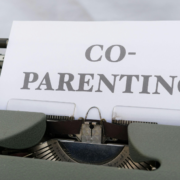Pennsylvania courts consider drug and alcohol use as a major factor impacting child custody determinations. Bucks County judges generally want to ensure that a parent is fit to perform their parental responsibilities before awarding them full or partial custody in the event of a divorce. Learn more about how drug and alcohol abuse can affect evaluations of parental fitness and impact your custody case.
What Is Parental Fitness?
In Pennsylvania, the court may sometimes mandate parental fitness testing or parenting capacity assessments to inform its decisions regarding child custody or welfare. These are comprehensive evaluations conducted by mental health professionals to assess a parent’s ability to meet their child’s emotional, physical, and developmental needs.
Parental fitness evaluations often involve interviews with the parent and, in some cases, the child, along with observations of the parent-child interactions, psychological testing of the parents, and assessments of information gathered from other individuals involved with the family. A judge might mandate a court-ordered parenting assessment to determine a custody arrangement that meets the child’s best interests, especially if drug and alcohol abuse might be at play.
Can Drug and Alcohol Testing Be Required for Custody Determinations?
The court can mandate drug and alcohol testing if there is credible evidence that a parent’s substance abuse impacts their parenting ability or puts the child’s well-being at risk. Evidence might include a history of drug-related arrests, credible witness testimony alleging drug or alcohol abuse, or reports of substance abuse in the child’s presence.
A positive test result does not automatically mean a total loss of custody, but it can seriously impact a judge’s decision.
Handling Court-Mandated Evaluations
If the court has ordered a fitness test to evaluate your parenting abilities or suspicions of drug or alcohol abuse, comply with the order and speak with your attorney about how it might affect your case. If you believe the order is unwarranted, your attorney can help you determine how to proceed.
The evaluation might require you to provide documentation, undergo drug or alcohol tests, participate in interviews, and allow an evaluator to visit your home. Your attorney can help you prepare for each stage of this process to paint an accurate picture of your parenting abilities.
Violations of Court-Mandated Evaluations
Some individuals might claim that a court-mandated fitness test or psychological evaluation constitutes a violation of their Fifth Amendment rights and that they can refuse to undergo this order. However, violating court mandates could harm your custody case. The judge will consider this violation when assessing your parenting abilities.
Instead of refusing a test that you believe is unwarranted or against your rights, talk to your attorney about how you can navigate a court-mandated evaluation effectively.
Seek Legal Assistance From Karen Ann Ulmer, P.C.
If you have been mandated to undergo fitness testing for your parenting abilities and suspected drug or alcohol abuse, our attorneys can help you understand your rights and legal options. We help clients across Pennsylvania navigate child custody cases. Contact Karen Ann Ulmer, P.C., today at (866) 311-6082 for a confidential consultation with our custody attorneys.












